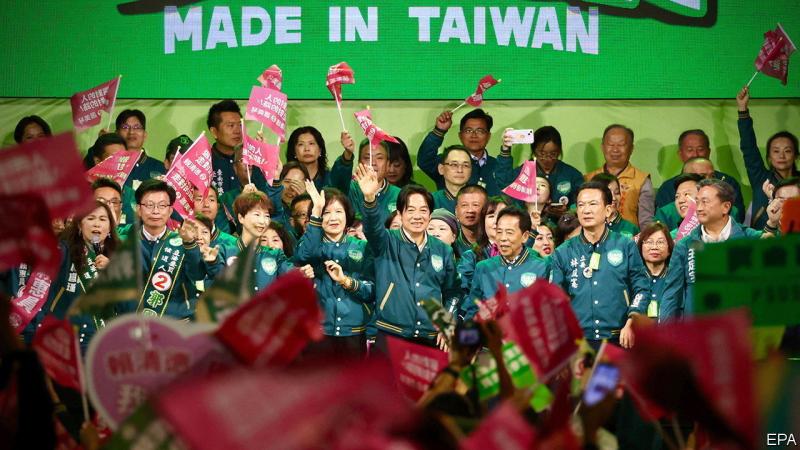
Shannon's excerpt from the article: "💯🏆Economist [excerpt]: Since the dpp returned to #power in 2016 under Tsai Ing-wen, Chinese commercial pressure has increased. Far Eastern Group, a Taiwanese conglomerate, was hit by a fine in 2021, which Chinese publications tied to the political views of its chairman, Douglas Hsu. Shortly afterwards Mr Hsu issued a statement rejecting Taiwanese independence. Even businessmen friendlier to #China have not been spared. In October Chinese state media reported a tax investigation into Foxconn, a giant Taiwanese contract manufacturer with vast operations in China. #Taiwan’s National Security Council claims that the tax probe was a targeted effort by China to prevent #Foxconn’s founder, Terry Gou, from dividing the pro-unification camp by running for president. In January China slapped tariffs on a range of Taiwanese chemical exports, a move widely viewed as another warning shot ahead of the election.
In the past such bullying led firms either to back the independence-wary Kuomintang (kmt), which favours closer economic links with the mainland, or to stay out of #politics altogether (the approach of tsmc, the world’s biggest chipmaker and Taiwan’s most valuable firm). This time corporate grandees, even those with exposure to the mainland, appear less cowed. Some have gone so far as to affiliate themselves with the dpp. Early last year Tung Tzu-hsien, who chairs Pegatron, a big contract manufacturer, became vice-chairman of the New Frontier Foundation, a dpp-associated think-tank. In the run-up to the election Frank Huang, chairman of Powerchip Semiconductor Manufacturing Corporation, endorsed Mr Lai openly.
Taiwanese businesses’ increased resistance to China’s strongarm tactics has several causes. American tariffs on Chinese-made goods have made export manufacturing on the mainland less attractive, notes Chun Yi-Lee of Nottingham University. Harsh policies such 'zero-covid' pandemic lockdowns and arbitrary crackdowns on sectors such as consumer technology have further dented China’s appeal. The recent weakness of China’s #economy is now compounding the sense that Taiwan’s economic future may not be so closely bound up with the mainland.
A shift is already visible in Taiwan’s trade and investment trends. The share of the island’s #exports going to the mainland has dropped to 23% over the 12 months to November, down from an all-time high of 30% in 2021 and the lowest in almost two decades (see chart). In 2010, over 80% of Taiwan’s annual outbound investment flows went to mainland China. In 2023 just 11% did."
#news #geopolitics #business

